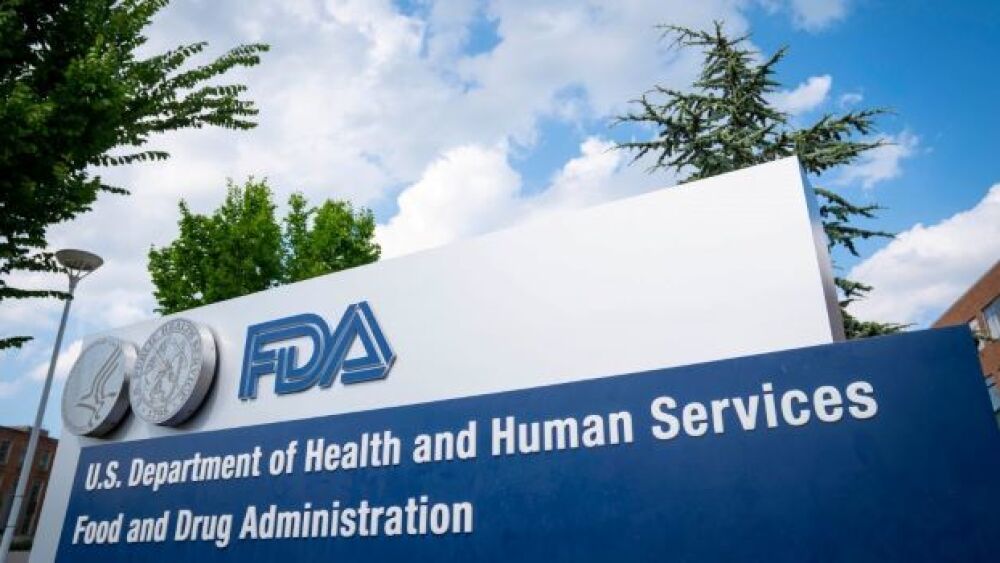The FDA is expected to cap off February with a trio of verdicts, including one for a heart failure treatment and another potential first approval for a rare, neurodegenerative disease.
Sarah Silbiger/Getty Images
The FDA is expected to cap off February with a trio of verdicts, including one for a heart failure treatment and another potential first approval for a rare, neurodegenerative disease.
Keep reading for details.
Moment of Truth for Cytokinetics’ Heart Failure Drug
On Feb. 28, the FDA is set to decide on Cytokinetics’ omecamtiv mecarbil (OM), a novel, selective cardiac myosin activator being evaluated for heart failure with reduced ejection fraction.
The regulatory agency accepted the New Drug Application for OM in February 2022 and initially set a target action date of Nov. 30, 2022. However, in May, the company announced the FDA planned to hold an advisory committee meeting for the application.
A month later, the FDA requested additional pharmacokinetic information for OM. The supplementary data qualified as a major amendment to the NDA, which pushed the target action date back to Feb. 28, 2023.
In December, a panel of external experts on the FDA’s Cardiovascular and Renal Drugs Advisory Committee voted 8-3 against backing OM, citing its mixed efficacy results and safety concerns.
Will Reata Score First Friedreich’s Ataxia Nod?
Reata Pharmaceuticals is expecting a Feb. 28 decision for its Friedreich’s ataxia hopeful, omaveloxolone. The drug activates Nrf2, a transcription factor that helps resolve inflammation by restoring mitochondrial function, reducing oxidative stress and inhibiting pro-inflammatory signaling.
The company first completed its rolling NDA for omaveloxolone in March 2022. In August, the FDA pushed the target action date back by three months after additional confirmatory data submitted by Reata was deemed a major amendment to the application.
Regeneron Seeks New Eylea Dosing Regimen
Also on Feb. 28, Regeneron is anticipating the FDA’s decision on a new dosing regimen for its blockbuster eye drug Eylea (aflibercept).
In a supplemental Biologics License Application filed June 2022, Regeneron proposed administering its 2-mg Eylea injections every 16 weeks after initial monthly doses in patients with diabetic retinopathy.
The sBLA was supported by data from the Phase III PANORAMA study, which found that compared with sham injections, 16-weekly dosing still improved Diabetic Retinopathy Severity Scale scores by at least two steps in enough patients.
Eylea is currently approved for diabetic retinopathy at 4- and 8-week doses, as well as wet age-related macular degeneration, macular edema following retinal vein occlusion and diabetic macular edema. Earlier this month, Eylea was approved by the FDA as the first pharmacologic therapy for retinopathy of prematurity in preterm infants.
FDA Convenes AdComm for Pfizer and GSK’s RSV Shots
The FDA has lined up two advisory committee meetings to discuss the efficacy and safety of two respiratory syncytial virus vaccine (RSV) candidates. On Feb. 28, experts will look at Pfizer’s vaccine, while GSK will get its chance on March 1.
GSK is slightly ahead of Pfizer in the RSV race. In November, the company snagged priority review for its RSV candidate in older adults, with a target action date of May 3, 2023. The application was supported by data from the pivotal AReSVi-006 trial, which demonstrated the vaccine could significantly protect against RSV-associated lower-respiratory tract diseases in adults aged 60 years and above.
Pfizer secured priority review for its own candidate a month later, in December 2022, with an action date also in May 2023. Pfizer’s application was supported by the Phase III RENOIR study, which showed an overall efficacy of 87.5% in adults aged 60 or older.
Both Pfizer and GSK are gunning to be the first to see an RSV vaccine through to the market.






